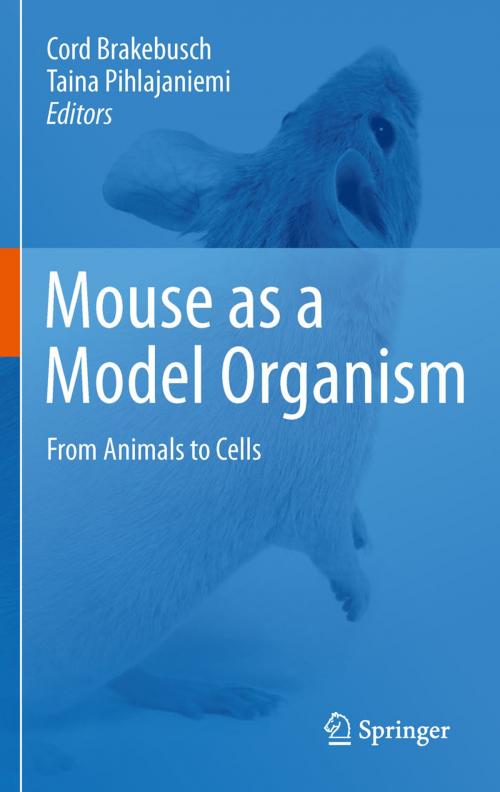Mouse as a Model Organism
From Animals to Cells
Nonfiction, Science & Nature, Science, Biological Sciences, Zoology, Biology, Health & Well Being, Medical| Author: | ISBN: | 9789400707504 | |
| Publisher: | Springer Netherlands | Publication: | March 29, 2011 |
| Imprint: | Springer | Language: | English |
| Author: | |
| ISBN: | 9789400707504 |
| Publisher: | Springer Netherlands |
| Publication: | March 29, 2011 |
| Imprint: | Springer |
| Language: | English |
Cell culture based research is important for our understanding of biological processes at the cellular and molecular level. Using this approach, the previous decades have produced a wealth of mechanistic information in all areas of biomedical research. Such in vitro research, however, lacks the complexity of in vivo investigations, where many different cell types interact with each other in a normal, three-dimensional environment, with normal levels of cytokines and growth factors. Furthermore, complex human diseases, such as cancer, diabetes or chronic inflammation, can only be modeled in vivo. Due to its small size, its short reproduction time, and the possibility to introduce specific gene mutations, the mouse has become the favourite mammalian model organism to study in vivo function of genes during development and in disease. This book combines review articles on selected subjects presented at the symposium “Mouse as a Model Organism – From Animals to Cells”, held in Rovaniemi, Finland, 2009. Among other topics, high-throughput phenotyping of mouse mutants, mouse phenotypes dependent on nature and nuture, and a spectrum of in vivo, ex vivo and in vitro methods to study cancer in mice are described. This book will give an excellent introduction to scientists interested in the use of mice as a model to understand complex biological questions in the post-genomic era. It will highlight the possibilities, but also discuss the current problems and shortcomings, to give a realistic view of the current state-of-art in this fascinating field of biomedical research.
Cell culture based research is important for our understanding of biological processes at the cellular and molecular level. Using this approach, the previous decades have produced a wealth of mechanistic information in all areas of biomedical research. Such in vitro research, however, lacks the complexity of in vivo investigations, where many different cell types interact with each other in a normal, three-dimensional environment, with normal levels of cytokines and growth factors. Furthermore, complex human diseases, such as cancer, diabetes or chronic inflammation, can only be modeled in vivo. Due to its small size, its short reproduction time, and the possibility to introduce specific gene mutations, the mouse has become the favourite mammalian model organism to study in vivo function of genes during development and in disease. This book combines review articles on selected subjects presented at the symposium “Mouse as a Model Organism – From Animals to Cells”, held in Rovaniemi, Finland, 2009. Among other topics, high-throughput phenotyping of mouse mutants, mouse phenotypes dependent on nature and nuture, and a spectrum of in vivo, ex vivo and in vitro methods to study cancer in mice are described. This book will give an excellent introduction to scientists interested in the use of mice as a model to understand complex biological questions in the post-genomic era. It will highlight the possibilities, but also discuss the current problems and shortcomings, to give a realistic view of the current state-of-art in this fascinating field of biomedical research.















